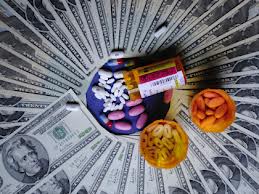The Supreme Court ruled that antitrust regulators could challenge the agreements that allow rival drug makers to postpone the sale of a generic drug. The arrangements, known as reverse payment or pay for delay, allow brand name drug manufacturers facing a patent challenge from generic companies to pay them to stay out of the market for the mean time.
The Federal Trade Commission has been trying to restrict these types of agreements for more than a decade. The agency argued they are anti-competitive. The FTC and private plaintiffs have pursued similar cases but were defeated in court. Four federal courts tackled the issue and only one ruled in favor of the FTC.
The Supreme Court, in a 5 to 3 decision, ruled that the FTC should have the opportunity to prove its claims in a case regarding the testosterone gel named AndroGel. The justices concluded that such agreements violate antitrust laws and should be scrutinized more.
The FTC filed a lawsuit to challenge the deals in 2009. A district court ruled in favor of the drug maker and the US Court of Appeals for the 11th Circuit affirmed the decision, citing legal theory used by other courts in similar cases.
The appeals court said the deals are legal as long as the rival companies agreed to let the generic drugs to reach the market before the patent for the brand name drug expired. But the Supreme Court didn’t go for the same reasoning. It sent the case back to the lower court.
FTC Chairwoman Edith Ramirez said the agency looks forward to move ahead with the case. The FTC estimates that the deal costs Americans $3.5 billion each year because of higher drug prices.
